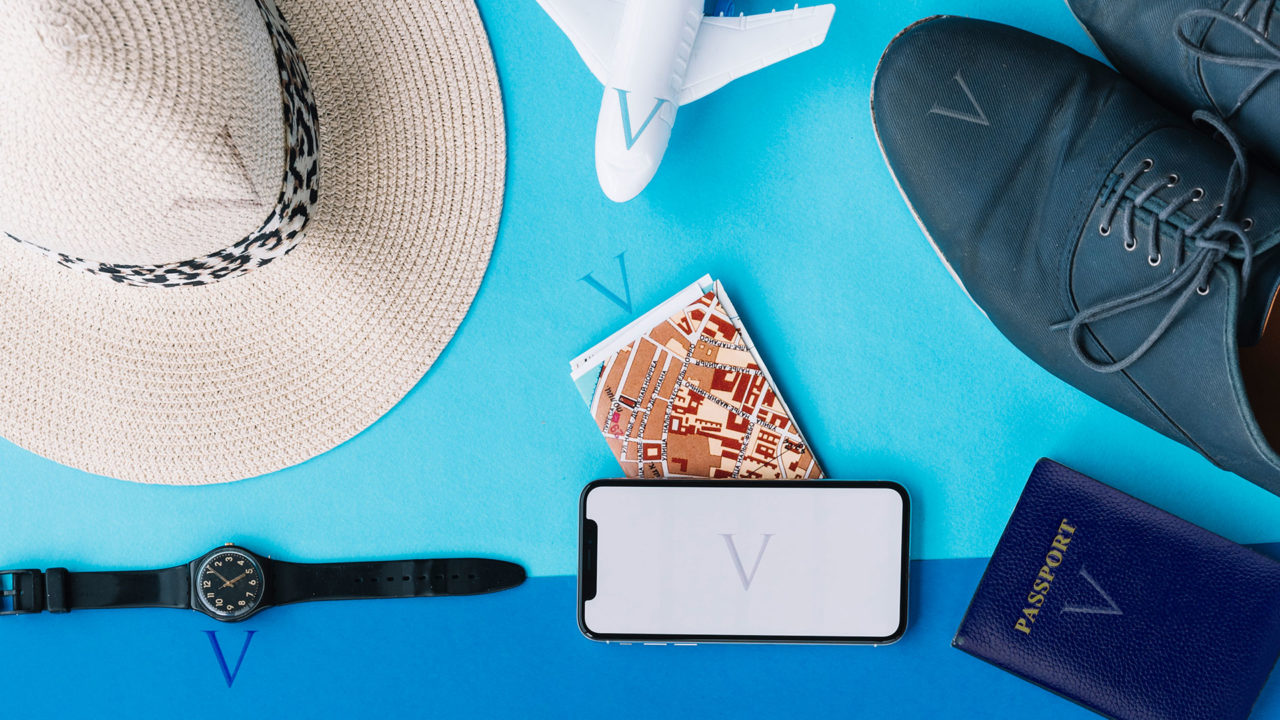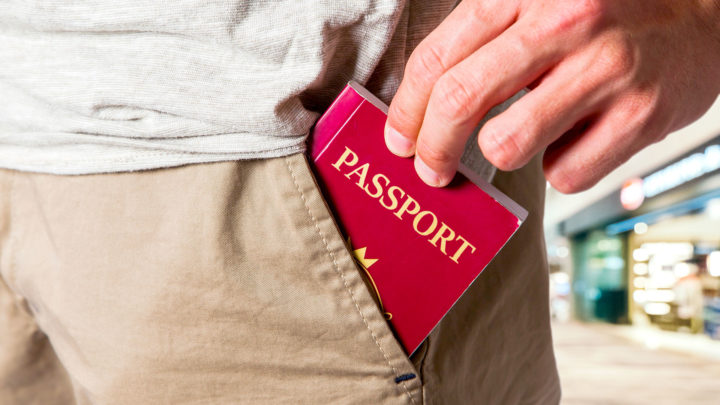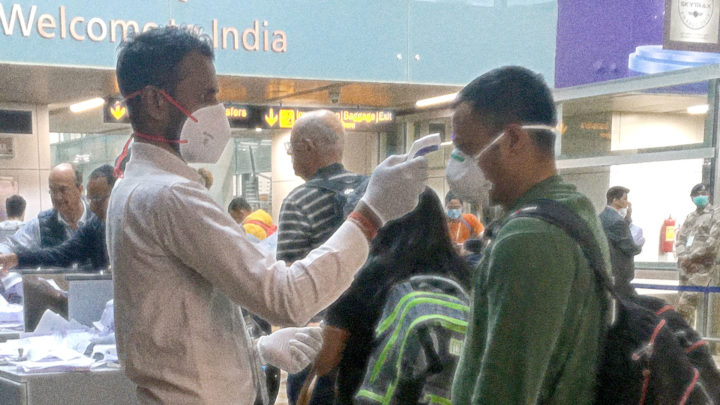Before enjoying a tourist destination, you must first get there. We have compiled a dozen travel tips to facilitate your day, based on our personal experiences. The best part? All begin with the letter “V” for “voyage”, to help you remember them.
Pre-departure planning – whether by train, ship, car or plane – reduces the chances of experiencing unforeseen situations that can cause you stress and ruin your trip.
1 Visa
One of the primary travel tips is to remember your traveler ID. At least until we get to the promised future where we do not need physical documentation to travel.
If you travel within your country or in bordering nations with travel agreements, your non-expired personal identification is usually enough. (Depending on the country, this can be your ID, driver’s license, etc.)
For international flights you need a passport issued by your nation of citizenship, with six months or more left before its expiration. The passport must include a visa that authorizes entry to your destination country, which is usually granted by the local Consulate of the territory in question. There are visas that allow entry to additional destinations to the country that belongs. In addition, depending on where your passport is, there are countries to which you can travel without a visa.
The procedures to request these documents can be costly and time-consuming. Apply for these in advance to ensure you have all the necessary documents to enter your destination. Contact the nearest Consular Office representing the country you plan to visit to confirm all documentation necessary for arrival.
2 Vulnerable
Our children are precious, vulnerable and in need of protection. In most cases, a adult traveling alone just need a valid passport approved to fly abroad. The situation gets more complex in the case of families with young kids.
A boy or girl traveling with both biological parents only requires a passport and visa like them. Now, if the minor travels with just one biological parent, or neither, he or she requires a legal travel authorization signed by the mother, father or absent parent.
Governments take measures against child trafficking very seriously. Therefore, requesting this travel license is a must, especially for blended families planning group vacations.
3 Vaccination
Another important task for immigration authorities is to prevent the introduction of contagious diseases to their borders. Countries often require that their visitors be properly vaccinated to avoid epidemics. Confirm that you and your companions have their vaccines up to date and carry their vaccination letters with them when entering another country.
When traveling with a caged pet, be sure to bring its travel permit and up-to-date health and vaccination history. Many countries require keeping animals brought from abroad in quarantine to verify their health status.
If you travel to several destinations, or decide to cross unexpectedly to a country near the one you visit, do some research on the health situation in the area to confirm you got all the shots required for your arrival. Migration agents are fully authorized to send you back to your country of origin, especially if they deem you a health risk.
4 Vademecum
As we talk about health, consider the vademecum or list of medications in your travel first aid kit. Going to a new and different environment can bring discomfort caused by a bad reaction to the weather, food and even the altitude of the place.
As more a health advisory than one of our travel tips, we recommend you include the following essential medicines in your baggage for any trip:
- Painkillers
- Allergy pills
- Over-the-counter Nonsteroidal anti-inflammatory drugs (NSAIDs)
- Anti-flu medicine
- Antacids
- Dizziness pills
- Antidiarrheal medicine (especially for children)
- Oral rehydration salts (ORS)
- Ulcer treatments (if applicable)
- Contraceptives
- Prescription medicine (insulin, anticoagulant, cholesterol or blood pressure pills, etc.)
If you travel with children, also include:
- Antibiotic ointments
- Their asthma inhaler (if applicable)
Remember to show doctor permits for medications and other controlled substances to the immigration agent.
If you need to purchase medicine in a pharmacy abroad, consider that the product you’re looking for may not be available or may require a prescription, even though it doesn’t where you live. Learn to buy medications by their active ingredient and dosage instead of their names or branding. Also look for active ingredients with similar effects if you cannot find your exact medication. (Acetaminophen versus Paracetamol, for example.)
Many destinations prohibit entry to travelers without travel health insurance. It may not be required and even seem like an unnecessary expense, but accidents can occur at any time. Better safe than sorry.
5 Vests
Never travel with clothing that’s impractical for your destination. Our beautiful planet is full of places with diverse climates and seasons. Avoid the discomfort of wearing light clothes to a cold destination, or carrying heavy coats during a heat wave.
Research the average temperature and the typical climate conditions of where you’re going at the time of the year when you plan to do so. Remember that the seasons are inverted between the northern and southern hemispheres. Were you to fly from Spain in the middle of winter, for example, you would land in Brazil in the middle of summer.
6 Valise
Nothing probably causes more delays and headaches at transport terminals like luggage problems. All train, bus and airplane lines differ in the quantity, size and weight allowance for bags per passenger, as well as what items can be transported inside them. The price you paid for your travel ticket may very well not include checked luggage, regardless of whether it’s as small as a valise or as large as a golf bag.
Buying a portable luggage scale is one of the most practical travel tips. You can easily confirm your packed bag is within the weight parameters imposed by your transport provider. The maximum weight allowed for hand luggage ranges between 22 and 26 pounds (10-12 kilograms) and an average of 50 pounds (23 kilograms) for each checked bag.
To ensure a smoother transition between destinations, verify which items are not allowed in carry-on luggage as well as checked baggage. Most clothing is okay. Weapons and explosive material of all types are prohibited for all luggage. This category may include aerosols or any compressed air product. Sharp objects such as utility knives and nail clippers are not allowed in carry-on luggage, but may travel in checked luggage.
Port security authorities are authorized to open your luggage under suspicion that it may contain carry illegal or hazardous materials, even when you’re not there to witness. Prevent your lock from being broken by using locks approved by the Transportation Security Authority (TSA) or related organizations.
By applying a good packing strategy, you can carry everything you need for your trip in a carry-on, which in turn will help you board and exit your flights more quickly. Visit the offices or website of your transportation provider to confirm everything you need to know about your bags.
7 Viands
You are what you eat, according to the saying, but in many cases you cannot take your viand of choice with you on your trip. Health and agriculture authorities work closely to prevent the entry of agricultural and / or edible products that present a risk to the fauna and flora of their region. This includes both raw ingredients and prepared treats.
When traveling between countries you should be clear about what foods you can transport with you and which ones you cannot. Processed and dehydrated meals are usually acceptable, for example, as long as they are low quantities for personal use. Your checked luggage may carry non-corrosive liquids with less than 70 percent alcohol, but only minimal quantities can be brought into the airplane cabin, under special circumstances.
Contact your transportation provider to find out what foods you can import to your destination. If you want to bring traditional food items from the region where you are as gifts, another of our travel tips is to purchase them at airport duty-free shops. The variety offered there is limited, sure, but everything you buy will be allowed on board.
8 Voltage
From computers to cell phones, we cannot live or travel without our electronic devices. Now then, are they travel-ready?
Remember that the type of electrical connection and voltage vary between countries. While the current in many North America and Caribbean nations ranges between 110 and 120 volts, much of the rest of the world — Asia, Europe, Oceania, South America — uses the 220-240 volt standard. That difference can fry your expensive devices.
Luckily, since appliances are manufactured for worldwide distribution, many of them are already fit for both 110-120v and 220-240v. Every device has a label showing its voltage compatibility (“INPUT”) and actual energy requirement (“OUTPUT”). With that information you can determine if your device only needs an adapter to fit it in local sockets or if you need to bring a voltage converter.
9 Vision
While you are preparing for your trip, remember that you will eventually return home. That means having the forethought to leave in order any commitment that cannot wait for your arrival and secure your home well to avoid problems. Put on your fortune teller’s hat, try to predict all eventualities that may occur in your absence and anticipate them.
When do your basic service bills (water, electricity, internet …) are due? Do you have any important projects to finish at work? Did you notify your bank that you will use your credit cards abroad?
Write a list of work and personal affairs you must attend to prior to your departure date, everything from paying your bills to closing the water and gas valves. All smartphones currently have reminder apps. These come very handy for making checklists with alerts to remind you of everything you need to complete for your trip, including what to pack.
10 Valuables
As in, protect yours! Did you close all your locks? Is there any point in your house vulnerable to forced entry? Do you have a good security system? Did you leave it activated? Apart from checking off everything in your to-do list, remember to safeguard your home from opportunistic thieves.
Secure all doors, windows and possible entry ways to your home. Even if you have a burglar alarm or a surveillance service, it is convenient to leave a copy of your keys with a relative or someone you trust who can frequently visit your home, collect your mail and grant access to emergency services in case of an emergency.
11 Vigil
The 24-48 hours before your departure are the most critical for many reasons.
First, only during this period does your travel line enable Web Check-In (an online pre-flight passenger confirmation service) for its passengers. This constitues one of the best known travel tips. Carrying out this check-in greatly optimizes your departure process. Were you to travel only with carry-on luggage, web check-in allows you to avoid the line at the airport counter and to go straight to the departure gate.
Second, any documentation or errand of those mentioned in our other V’s still pending at this period likely may not get resolved or delivered on time. In that case you will have to get creative in problem solving, choose a contingency plan or delegate whatever’s pending to avoid missing your flight, train or bus. That would be disastrous for those who purchase cheap non-refundable tickets.
Speaking of missing departures, keep your departure schedule in mind. Given the confusion caused by the difference between 12-hour (AM-PM) and 24-hour (00-23hs) time systems, one can easily confuse a departure time at dawn for one after midday. If your flight is scheduled for December 19 at 2:30 a.m., you must get to the airport on the night of December 18.
12 Vacancy
Another considerable point among our travel tips is seat overbooking. Transportation companies, especially airlines, tend to overbook seats because they need to fill each of their vehicles to make a profit, as opposed to having them depart below their capacity. As a result, they usually offer hotel lodging, dinner and vouchers for future trips to those willing to give up their seat on overbooked trips.
We advise you to plan a day or two of rest after your trip to recharge your energies before returning to work. If the offer of a free flight coupon is presented, you will then have the extra time available to accept the offer and return home with guaranteed transportation for your next vacation.
Practical Travel Tips
With that, we wrap up our list of travel tips to make your next visit more pleasant. Maybe for you the journey is more important than the destination, or perhaps the faster the travel time, the better you think your visit will be. In either case, the more prepared you are during your voyage, the better you can appreciate your destination.
(Foto: Freepik.)




